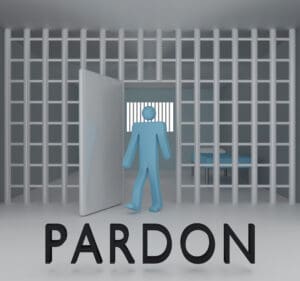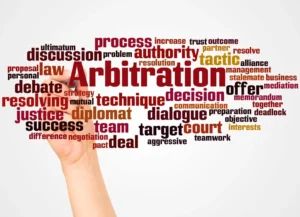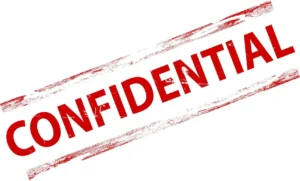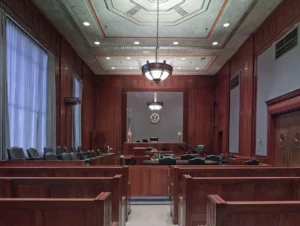You have the legal right to ensure your child’s education is provided in a safe, respectful environment. Understanding education law is crucial to protect your child’s rights and navigate any potential issues that may arise within the school system. Let’s unravel the complexities of legal rights in schools to empower you as a parent or guardian.
Student Rights
Freedom of Speech and Expression
A student’s freedom of speech and expression in schools is protected by the First Amendment. This means that students have the right to express their opinions, beliefs, and ideas, as long as it does not disrupt the school environment or promote illegal activities.
Privacy and Confidentiality
For students, privacy and confidentiality are crucial rights protected under education law. Schools must safeguard student records, grades, and personal information from unauthorized disclosure. This includes ensuring that only authorized individuals have access to students’ confidential information.
Privacy and confidentiality laws also extend to student health records, ensuring that sensitive information is protected. Schools must obtain parental consent before sharing student information with third parties, except in cases where it is required by law.
Teacher Rights
You, as a teacher, have specific rights that protect you in the school environment. These rights are imperative to ensure a fair and supportive workplace where you can fulfill your role effectively.
Academic Freedom
On the topic of academic freedom, teachers have the right to express their views and teach subject matter without censorship or interference. This ensures that educators can engage students in critical thinking and open dialogue, imperative components of a quality education.
Protection from Harassment and Discrimination
Any form of harassment or discrimination in the workplace is unacceptable and illegal. Teachers are protected by law from any such behavior, including but not limited to acts based on race, gender, religion, or sexual orientation.
Discrimination can have serious consequences for both the teacher and the school. It can create a hostile work environment, impacting not only the teacher’s well-being but also the quality of education provided to students. Schools must take allegations of discrimination seriously and take appropriate action to address them.
Parental Rights
Access to Educational Records
Even though schools keep detailed records on students, parents have the legal right to access these records. The Family Educational Rights and Privacy Act (FERPA) grants parents the right to review and request changes to their child’s educational records.
Involvement in Decision-Making Processes
Access to information is crucial for parents when it comes to involvement in decision-making processes. Parents have the right to participate in meetings and discussions regarding their child’s education, including Individualized Education Program (IEP) meetings for students with special needs.
To ensure that parents are well-informed and can provide input into decisions that affect their child’s education, schools must communicate effectively and involve parents in a meaningful way.
School Responsibilities
Providing a Safe Learning Environment
Many schools have the responsibility to ensure that students are in a safe learning environment. This includes implementing safety measures, preventing bullying, and addressing any threats to student well-being.
Accommodating Students with Disabilities
Many schools must adhere to laws that require them to make reasonable adjustments for students with disabilities. This is to ensure that these students have equal access to education and can fully participate in school activities.
Understanding the needs of students with disabilities is crucial for schools to provide appropriate accommodations. This may include modifications to curriculum, the provision of assistive technology, or specialized support services to help these students thrive academically.
Final Words
Now equipped with a deeper understanding of Education Law and Legal Rights in Schools, we can navigate the complex legal landscape with confidence. Just as Malcolm Gladwell breaks down intricate concepts for his readers, we can approach legal issues in education with clarity and understanding. Be mindful of, knowledge is power, and in this case, knowledge of your legal rights is key to ensuring a fair and just educational experience for all.
FAQ
Q: What are some legal rights students have in schools?
A: Students have the right to a safe and supportive learning environment, access to special education services if needed, protection from discrimination based on factors like race or disability, and the right to free speech within certain limits.
Q: Can schools discipline students for their behavior?
A: Yes, schools can discipline students for violating school rules, but the discipline must be fair and follow the procedures outlined in the school’s code of conduct. Students also have the right to appeal disciplinary actions.
Q: How can parents and students advocate for their legal rights in schools?
A: Parents and students can advocate for their legal rights by familiarizing themselves with relevant education laws and policies, communicating effectively with school administrators, seeking legal assistance if necessary, and staying informed about any changes in education law that may affect their rights.
Type of Attorney and How to Find Them on Attorneys.Media
For issues related to education law and understanding your legal rights in schools, it is essential to consult with an attorney specializing in education law. These attorneys are knowledgeable about the regulations and legal protections in place to ensure fair and equitable treatment in educational settings. They can provide expert guidance on a variety of issues, including student rights, disciplinary actions, special education, and discrimination.
To find a qualified education law attorney, you can use the directory available on Attorneys.Media. Start by visiting the website and exploring the “Education Civil Law EN” or “Education Law” categories. These sections feature profiles of attorneys who specialize in education law and related legal issues. Each profile provides comprehensive information about the attorney’s background, areas of expertise, and contact details, making it easier to select the right legal professional for your needs.
When selecting an education law attorney, consider their experience in handling cases similar to yours. Look for attorneys with a proven track record of successfully representing clients in education-related legal matters. Reading reviews and testimonials from previous clients can offer valuable insights into the attorney’s effectiveness and dedication to their clients. By leveraging the resources on Attorneys.Media, you can find a knowledgeable and experienced education law attorney who will advocate for your rights and help you navigate the complexities of education law.
Attorneys.Media Video Document References
- Is Personal Injury Part of Your Law Practice?
- As an Attorney, How Are You Generating Content for Your Online Presence?
- How Can You Help Potential New Clients Get Their Questions Answered?
- How Do You Differentiate Yourself When Someone Looks Online for Help?
- How Do You Differentiate Yourself as a Criminal Defense Attorney?
- Have You Been Thinking About Video Marketing for Your Law Firm?
- Should Attorneys Use Video Marketing to Attract New Clients?
- What Do Potential Clients See When They Research Your Name Online?
- How Attorneys.Media Can Help You




















